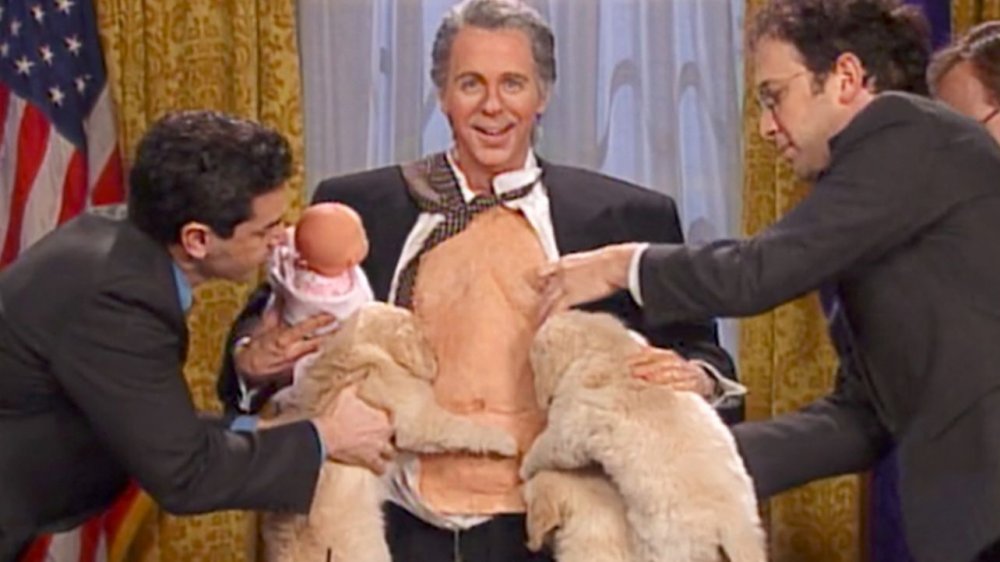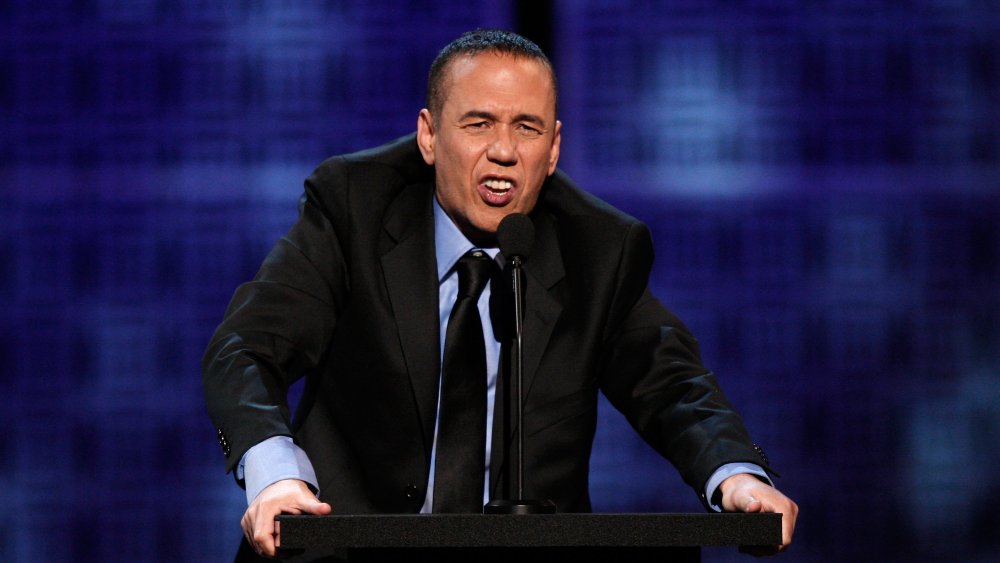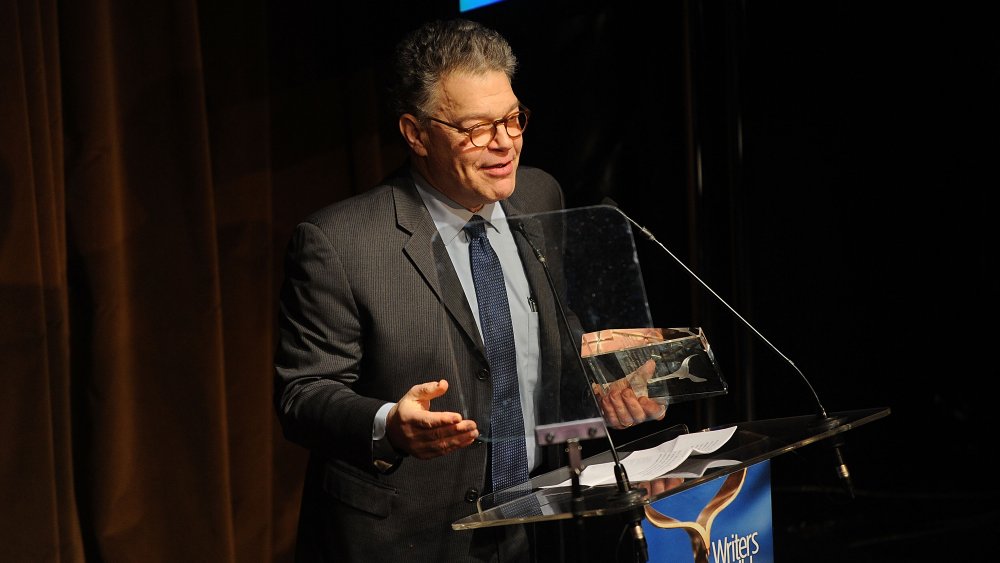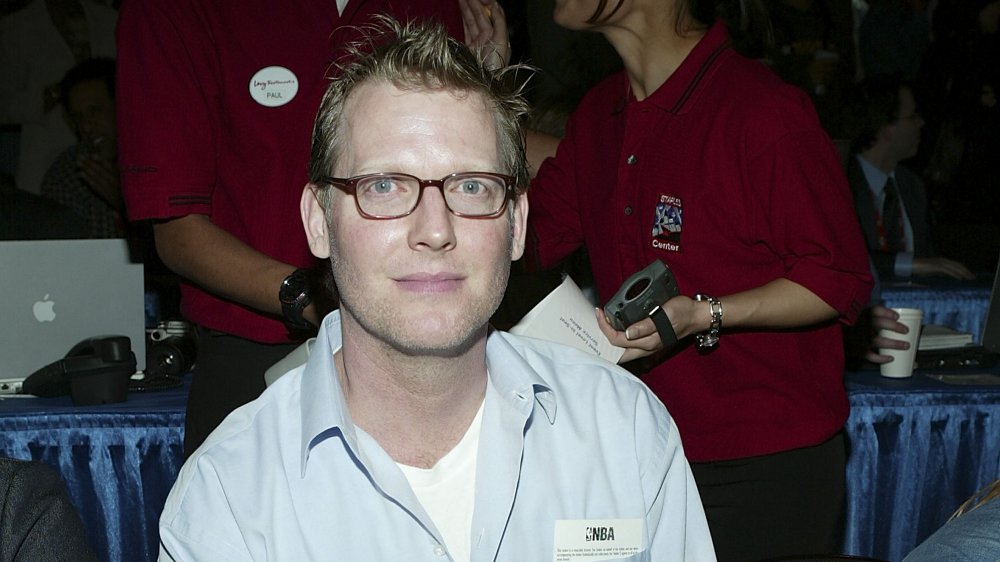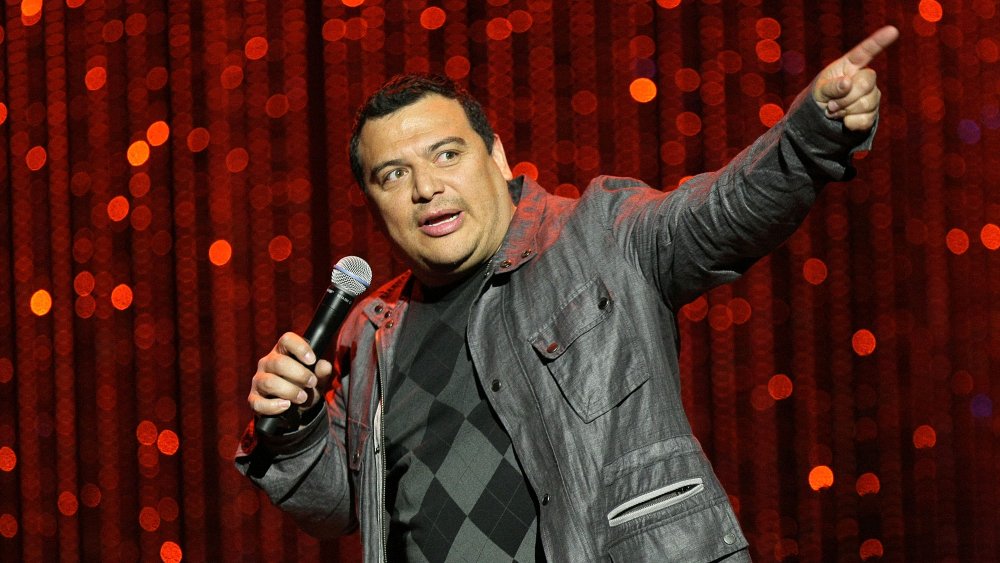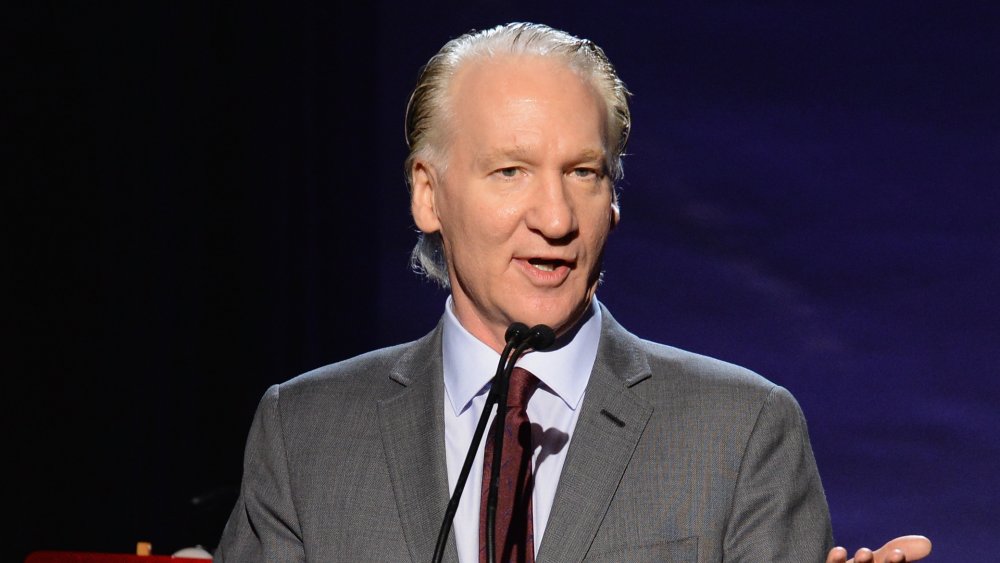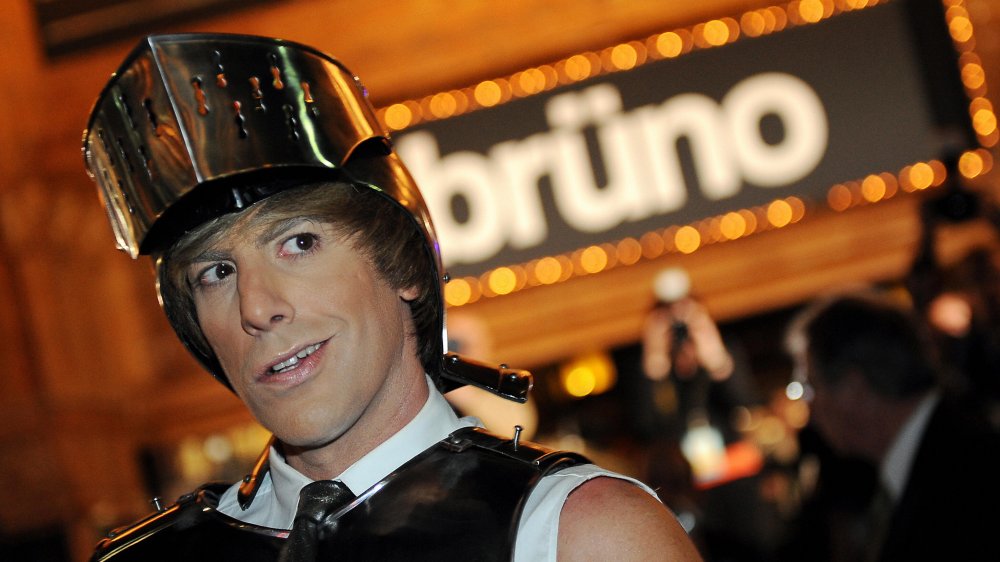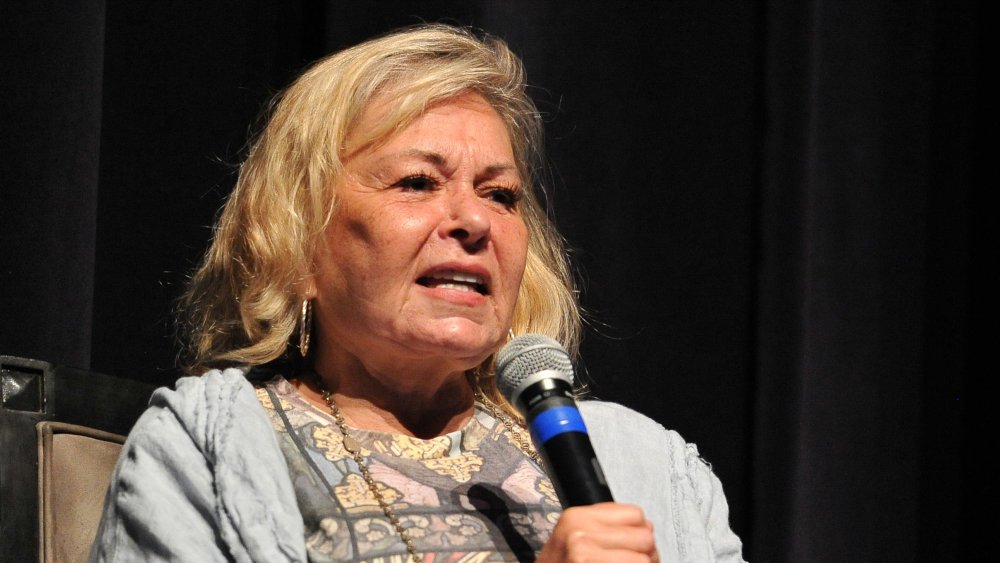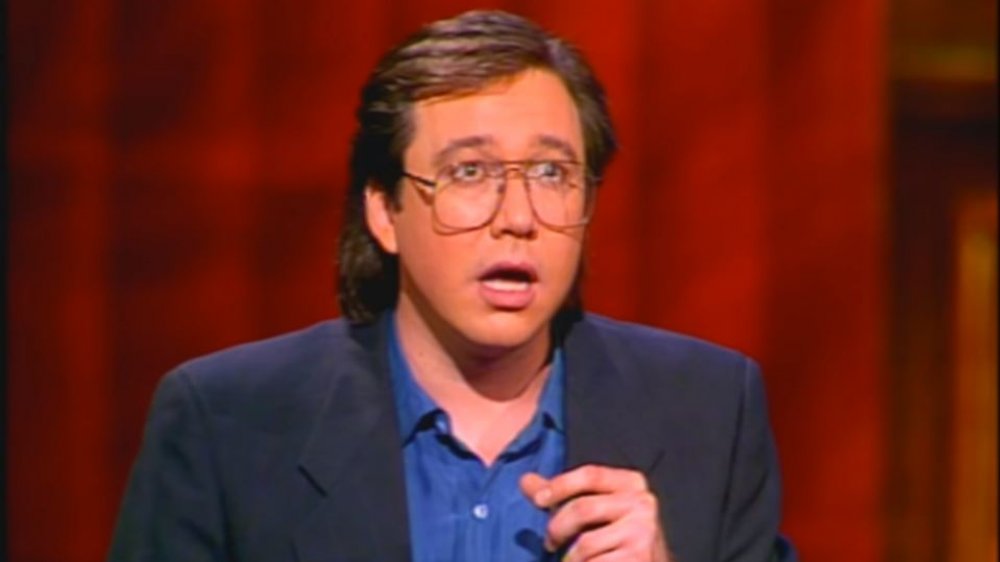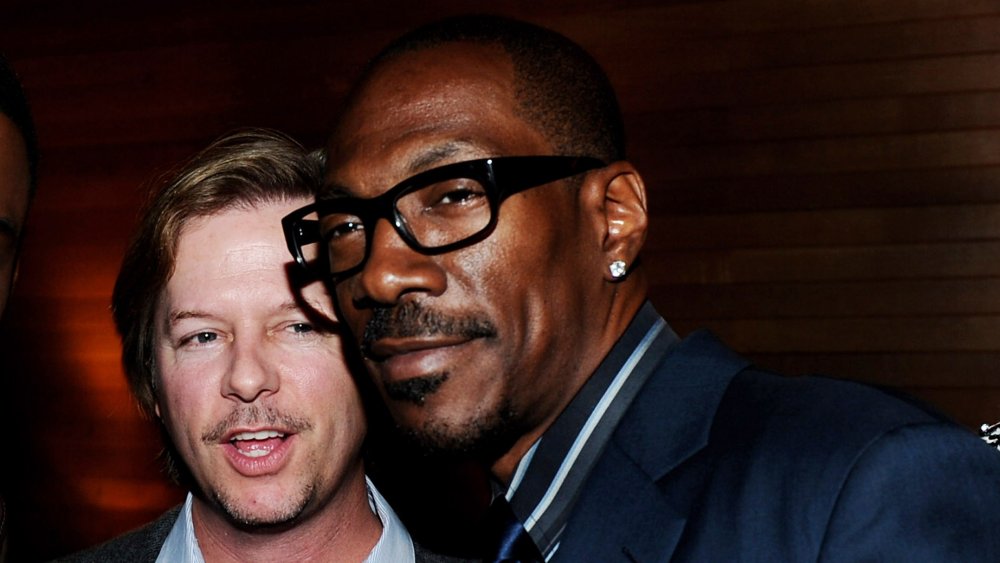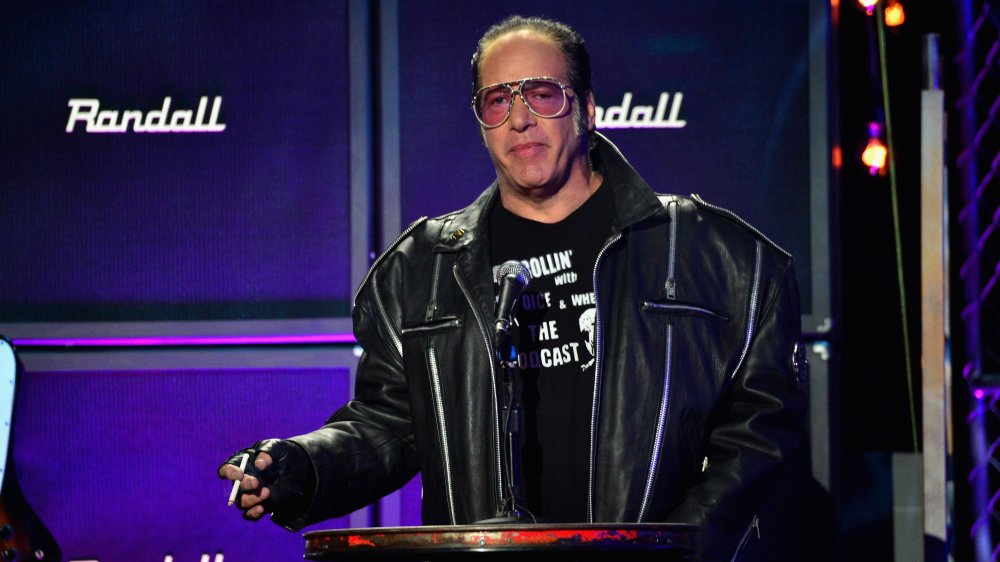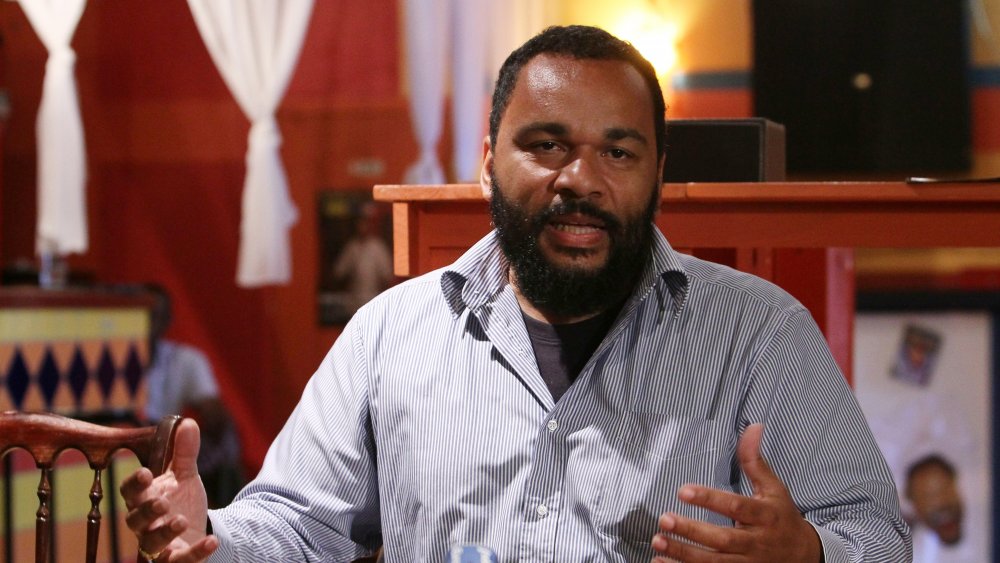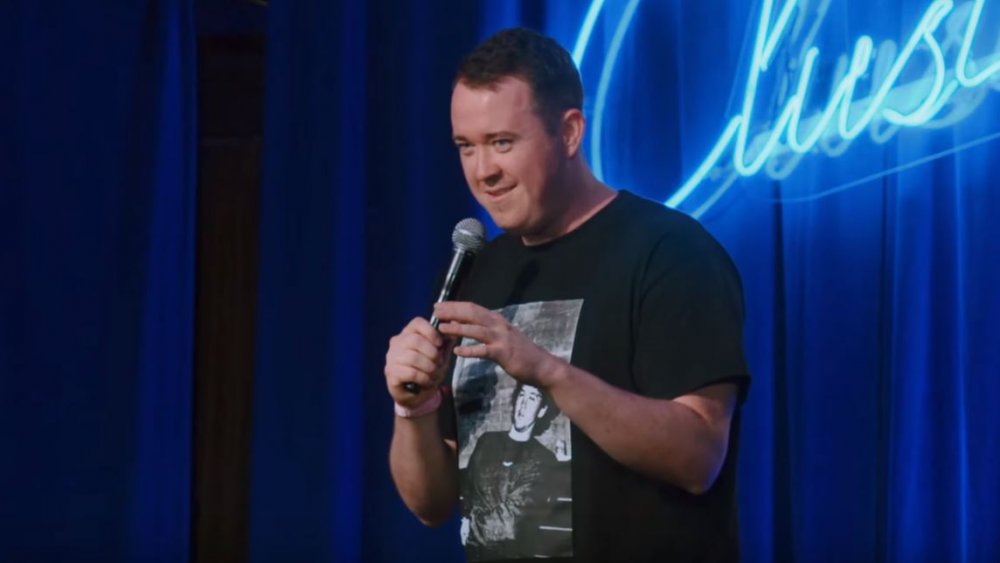Comedians Who Went Too Far
Comedy is subjective. With so many different acts and genres, it's easy to find someone one doesn't like. This could be due to a stylistic preference or a personal distaste due to subject matter. What's offensive to one party isn't necessarily offensive to another — and even if it is, there's a lucrative market carved out entirely for offensive humor. Even widespread dislike for a comedian won't necessarily hurt their bottom line.
Sometimes, though, comedians go too far. Not just in a way that makes a crowd upset, but in a way that costs them something — be it a job, money, or time. These comedians didn't just say something over an imaginary line — they said or did something that caused real-life consequences outside a comedy club stage or TV show sketch. There was a palpable punishment for their actions beyond booing.
Comedy is subjective, but the fallout from a bit that crosses the line isn't, and these stories prove it. Here's a look at some comedians who went too far.
Gilbert Gottfried tweets his way out of Aflac
Gilbert Gottfried is famous for pushing boundaries, most famously breaking into a rendition of The Aristocrats after dropping a 9/11 joke three weeks after the terrorist attacks. But one taboo-testing gag cost Gottfried a gig because his joke could have hurt a company's bottom line.
One of his most enduring roles was the Aflac duck, a mascot for the insurance company who'd squawk their name in ads. He was so well-known for his work as the duck that he appeared outside commercials, including a cameo in A Series Of Unfortunate Events. But that all changed after the 2011 tsunami in Japan, when Gottfried tweeted out several jokes about it. Unsurprisingly, many thought it was too soon — after all, the tragedy was ongoing.
The biggest problem with these jokes, though, wasn't taste — it was business. Aflac does 75 percent of its business in Japan, and the jokes turned Gottfried into a toxic asset for them overnight. He was promptly fired from the gig, and Aflac auditioned many people for his replacement before finally hiring a soundalike.
The lesson? Don't bite — or if you're a duck, nibble — the hand that feeds you.
Al Franken blows his chance to run SNL
Saturday Night Live veteran Al Franken is another comedian who learned not to bite the hand that feeds you. It might cost you the best job you'll ever be offered.
In May 1980, Franken did a segment on SNL's "Weekend Update" dubbed "A Limo For A Lame-O." He spent the segment going after Fred Silverman, president of NBC, calling the exec "a total, unequivocal failure" and mocking him for working at the network for two years without producing a single show in the top ten of the Nielsen ratings. Franken expressed disgust at Silverman getting door-to-door limo service when his network had nothing to show for it, and encouraged fans to write in and demand that Franken get his own limo.
Saturday Night Live producer Lorne Michaels had wanted Franken to succeed him as showrunner on SNL, but after this segment, Silverman completely cut off communication with Franken, ruining any chance of him taking the reins.
Craig Kilborn was suspended from the Daily Show
Craig Kilborn is best known for his spell as host of The Late Late Show, but he was also the first host of The Daily Show, pre-Jon Stewart. He helped spearhead the comedy news genre, but got in trouble for telling the wrong joke about the wrong person at the wrong time.
The Daily Show is the creation of Lizz Winstead, one of the most respected behind-the-scenes names in comedy. She and Kilborn butted heads about the direction of the show, which came to a head in December 1997, when word got out that he'd made deeply inappropriate sexist remarks about the women on the staff — including Winstead — during an Esquire interview.
Kilborn was suspended for a week without pay. "Though my comments were said in jest," he said in a press release, "and not intended for publication, I realize I have made a terrible mistake for which I am truly sorry." Winstead left the show not long after. Not many of his collaborators from the time have kind words for that era. Stephen Colbert, one of the few holdovers from Kilborn's tenure to Stewart's, had the following to say about Kilborn: "He was really good at reading the teleprompter."
Carlos Mencia steals jokes, loses support
Carlos Mencia was briefly one of the most visible comedians in the country, hosting sketch show Mind of Mencia and pumping out a new comedy special on a yearly basis. But it's impossible to talk about Mencia without talking about his reputation for joke stealing, which has inspired the nickname "Carlos Menstealia" and led comedy clubs to warn comics when he was in the room.
Joe Rogan was among the first to take Mencia to task for joke theft, compiling a long list of bits lifted by Mencia from other comics. George Lopez claims to have had a confrontation with Mencia after hearing one of his bits lifted without permission.
In 2010, Mencia was a guest on comedy podcast WTF with Marc Maron. Mencia dismissed accusations of plagiarism, saying that jokes he'd allegedly stolen couldn't be attributed to any one person. The interview didn't sit right with Maron, who reached out to several comedians who confirmed stories of joke thievery. Mencia came back for a follow-up interview, which was much more open and vulnerable. He also admitted to deliberately going over her allotted time at shows to bump other comedians.
He's been in precious little since Mind of Mencia ended, and it isn't hard to understand why.
Bill Maher pushes the limits of 'Politically Incorrect'
Bill Maher has a history of courting controversy on his TV shows, but his first big "too far" moment started a domino effect that led to his show getting canceled.
On the September 17th, 2001 edition of Politically Incorrect, Maher's guests were discussing the recent 9/11 terrorist attacks. Responding to George W. Bush calling the terrorists "cowards," future well-known conspiracy theorist Dinesh D'Souza argued that the terrorists' willingness to give their lives meant they were "warriors." Maher chimed in, adding, "[We] have been the cowards, lobbing cruise missiles from 2,000 miles away. That's cowardly. Staying in the airplane when it hits the building, say what you want about it, it's not cowardly."
Many people — including several ABC station managers — interpreted this as Maher calling the U.S. military cowardly. Many advertisers immediately pulled their support for the show, and several ABC affiliates yanked the show from air for a time. White House press secretary Ari Fleischer even told Maher, "Watch what you say and what you do."
Maher later apologized and clarified his position. "In no way was I intending to say, nor have I ever thought, that the men and women who defend our nation in uniform are anything but courageous and valiant, and I offer my apologies to anyone who took it wrong," he said. The show went on but had trouble attracting sponsors, and was taken off the air the following June.
Sacha Baron Cohen, forced to settle
Sacha Baron Cohen earned his fame playing — nay, becoming — characters who'd go around and irritate people for the sake of comedy under the guise of journalism. Often, people involved with his characters didn't find it all that funny, but only one person was able to show that he went too far in a court of law.
Almost everyone who has appeared in one of Baron Cohen's projects — even those ridiculed — sign releases. He's been sued many times, but the lawsuits have often been thrown out because the parties involved signed a release. However, during the production of his film Bruno, he went further than his release allowed.
During the film, Bruno interviews Ayman Abu Aita and labels him a "group leader" of al-Aqsa Martyrs' Brigades, a Palestinian militia coalition. Aita, a Christian Palestinian, has no connection to them. He's a grocer by trade and a self-described non-violent activist doing non-profit work in the Palestinian territories. The sticking point for the defamation claim was that Aita's own words weren't used against him, and that he was branded as a terrorist. The case was settled "to the mutual satisfaction" of everyone involved.
Roseanne Barr tweets her way off the air
Roseanne Barr has a long history of courting controversy, dating back to her shrieking performance of the national anthem. Around 2015, however, she took a hard turn to the political right, becoming became a vocal Donald Trump supporter and promoting conspiracy theories such as QAnon and Pizzagate.
None of this seemed to matter much to ABC, where she was brought back to revive Roseanne in 2018. Initially, the show was a ratings success, but this was undone in an instant after she tweeted a joke that went too far.
In May of 2018, Roseanne tweeted a racist remark directed at former Barack Obama adviser Valerie Jarrett. ABC responded by promptly canceling Roseanne. It was brought back in a modified form as The Conners — essentially the same show but without Roseanne, whose character was killed offscreen. Roseanne called it a bad joke and blamed it on taking an Ambien; Sanofi, Ambien's parent company, responded by saying "racism is not a known side effect" of any of their medications.
Bill Hicks, censored on Letterman
Bill Hicks was a proud outlaw comic. Years after his death, his website still bears the warning: "This website contains everything your parents hate, everything the Church preaches against, everything the Government fears. Enjoy!"
He first appeared on network TV on Late Night With David Letterman, and became a regular on the show. His 12th appearance, on the October 1, 1993 edition of the Late Show with David Letterman, took on, amongst other things, pro-lifers, Christianity, and homophobia. It was well-received by the audience, but when Hicks got back to his hotel room, Late Show executive producer Robert Morton called up to inform Hicks that the routine was spiked. He put the blame on the CBS department of standards and practices, saying they found most of the material unsuitable for broadcast.
Hicks was incensed, writing a 39-page letter to a friend outlining how much he hated CBS, and burned his bridge with Letterman. Hicks died of pancreatic cancer less than a year later. In 2009, Letterman admitted it was his call to remove the segment. He spoke to Hicks' mother as a way of making things right, and played the clip for the first time.
David Spade's joke bothers Eddie Murphy for years
Eddie Murphy has had a difficult relationship with Saturday Night Live since leaving the cast in 1984, some of which can be traced back to a joke David Spade told that went too far.
Spade had a recurring segment on SNL's "Weekend Update" called "Hollywood Minute" in which he spent time mocking celebrities. One week, in response to Murphy putting out back-to-back flops in theaters, Spade put up a picture of Murphy sand said "Look, children, a falling star! Quick, make a wish!"
That Monday, Murphy called Spade and laid into him, hanging up before Spade — who has said he idolized Murphy — could apologize. Murphy used the joke for years as pretense for not returning to SNL, upset that a place he called home would take a shot at his career. Fortunately, time seems to have healed those wounds; Spade later recalled the pair finally mending fences 20 years after the bit aired, and Murphy agreed to return to host SNL in 2019.
Andrew Dice Clay gets banned from MTV for life
Andrew Dice Clay's whole deal was controversy. The Diceman character, a chainsmoking cocksure macho moron, was crude, brash, and impossible to ignore. People loved him or hated him, as a result he became the hottest comedy act in America for a time. In February of 1990, he became the first comic to sell out Madison Square Garden for two consecutive nights. But he also went too far even for cable TV and got himself in trouble.
At the 1989 MTV VMAs, Dice was brought out to perform a brief stand-up set and introduce Cher. He then broke out his most famous routine — his so called "naughty nursery rhymes." He went off-script delivering them, including dropping in one or two of George Carlin's seven dirty words for good measure.
This was too far for MTV executives, who responded by banning Dice from MTV for life. He was able to use this to boost his reputation for a time, and the ban was quietly lifted in the early 2010s, right around the time Clay started pivoting into acting in more serious and subtle roles.
Dieudonne ends up in court
Dieudonne was once a popular comedian in France. Somewhere along the line he became something of a hate symbol, one that the French government has been trying to stifle for years. Almost everything he does, both morally and legally, is too far.
He's spent time publicly cozying up to anti-Semites, including ousted right-wing party National Front leader Jean-Marie Le Pen, Holocaust denier Robert Faurisson, and former Iranian President Mahmoud Ahmadinejad. During one performance, he lashed out a Jewish journalist by saying that she should have been sent to the gas chambers.
Diuedonne has been fined and otherwise penalized for many of his routines. Free speech laws are different in France than in the U.S. or many other western countries; speech determined possible to incite hatred is penalized in the name of safety. A prime example occurred in 2015, when a performance in Belgium went too far. Dieudonne was brought to court for inciting hatred, sentenced to two months in prison, and levied with a 9,000 euro fine.
Shane Gillis' podcast comes back to haunt him
Before Saturday Night Live's 45th season, three new cast members were announced, including Shane Gillis. Several days later, Gillis was no longer part of the show.
Mere hours after GIllis's hiring was announced, clips from his podcast began circling social media. In them, he made many racist jokes about Asians, slurring his words and using a mocking accent. Other clips saw him using homophobic slurs. Vulture also reported that the Good Good Comedy Theatre in Philadelphia — Gillis's home turf — had stopped working with him years ago "because of racist, homophobic, and sexist things he's said on and offstage."
Gillis responded with a statement on Twitter stating "I'm a comedian who pushes boundaries. I sometimes miss... I'm happy to apologize to anyone who's actually offended by anything I've said." This half-apology did little to assuage criticism and his hiring was revoked within days of it being announced.
Variety later reported that SNL relaxed its vetting process with Gillis because they were seeking out a comedian "who would appeal to more conservative viewers" to combat accusations of liberal bias. Even though Gillis went too far, does SNL deserve some of the blame?
The Dana Carvey Show sandbags itself on sketch number one
Dana Carvey's eponymous 1996 variety show on ABC remains an important piece of television for something with such a short run. Salon called the premiere episode a "rousing blast of kamikaze satire, much of it in borderline-questionable taste." It was a launchpad for Steve Carrell and Stephen Colbert, and the writers' room was arguably one of the greatest in TV history. Despite this, the show only lasted seven of a planned 10 weeks. This has often been blamed on one sketch that went too far... and what's even worse is that it was the very first one.
Each episode saw the show renamed after a brand in the style of vintage TV variety shows, and the premiere episode was called the "Taco Bell Dana Carvey Show." The show followed Home Improvement and led into NYPD Blue, but nobody working on the Dana Carvey Show had actually watched Home Improvement and didn't know it was family-friendly.
This became an instant problem due to the opening sketch, which saw Carvey as Bill Clinton, addressing the nation from the Oval Office. He spent much of the bit making fun of the 1996 Republican primary field, but in the last two minutes, to prove he was a "nurturing" president, he pulled his shirt off, revealing several teats; a series of babies, dogs, and cats started breastfeeding from him.
ABC had a minute-by-minute breakdown of the show from Nielsen, and found out that several million viewers changed channels after the shirt came off. Everyone immediately knew they were in trouble. Taco Bell and Pizza Hut pulled the advertising, saying some sketches went "too far." The show only lasted a few more weeks, but we're still talking about the Bill Clinton breastfeeding sketch to this day. Ahead of its time, indeed.
